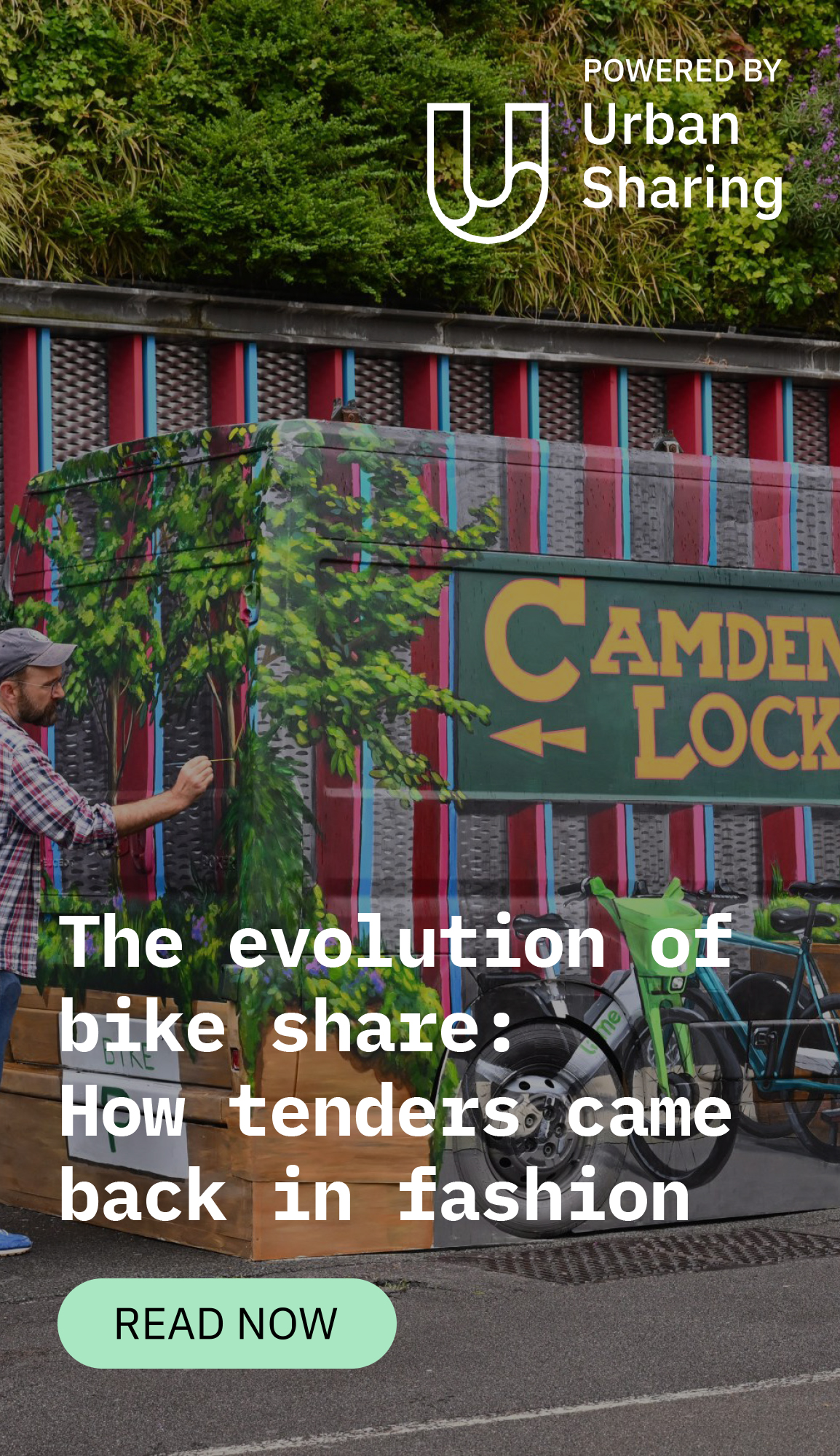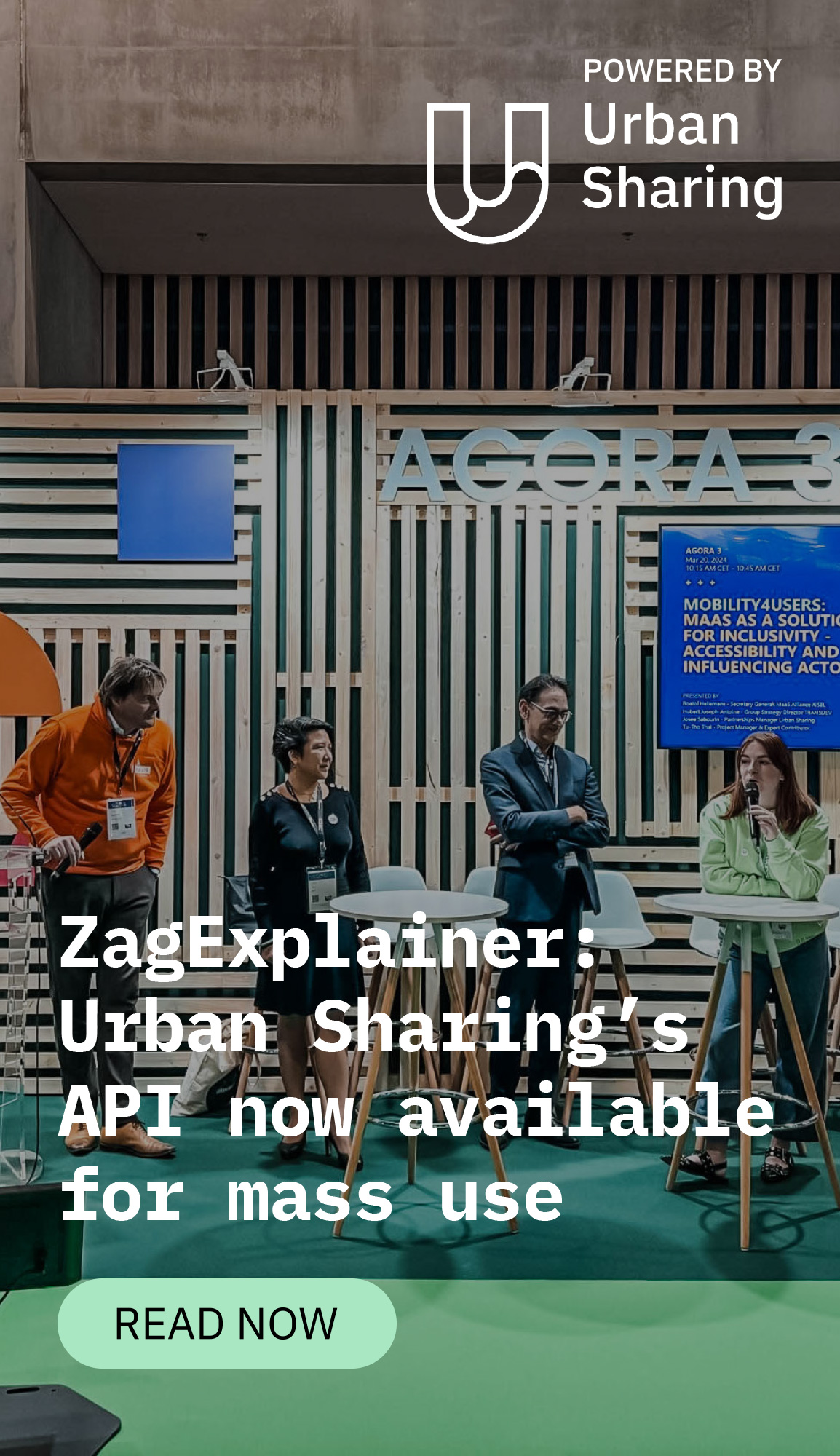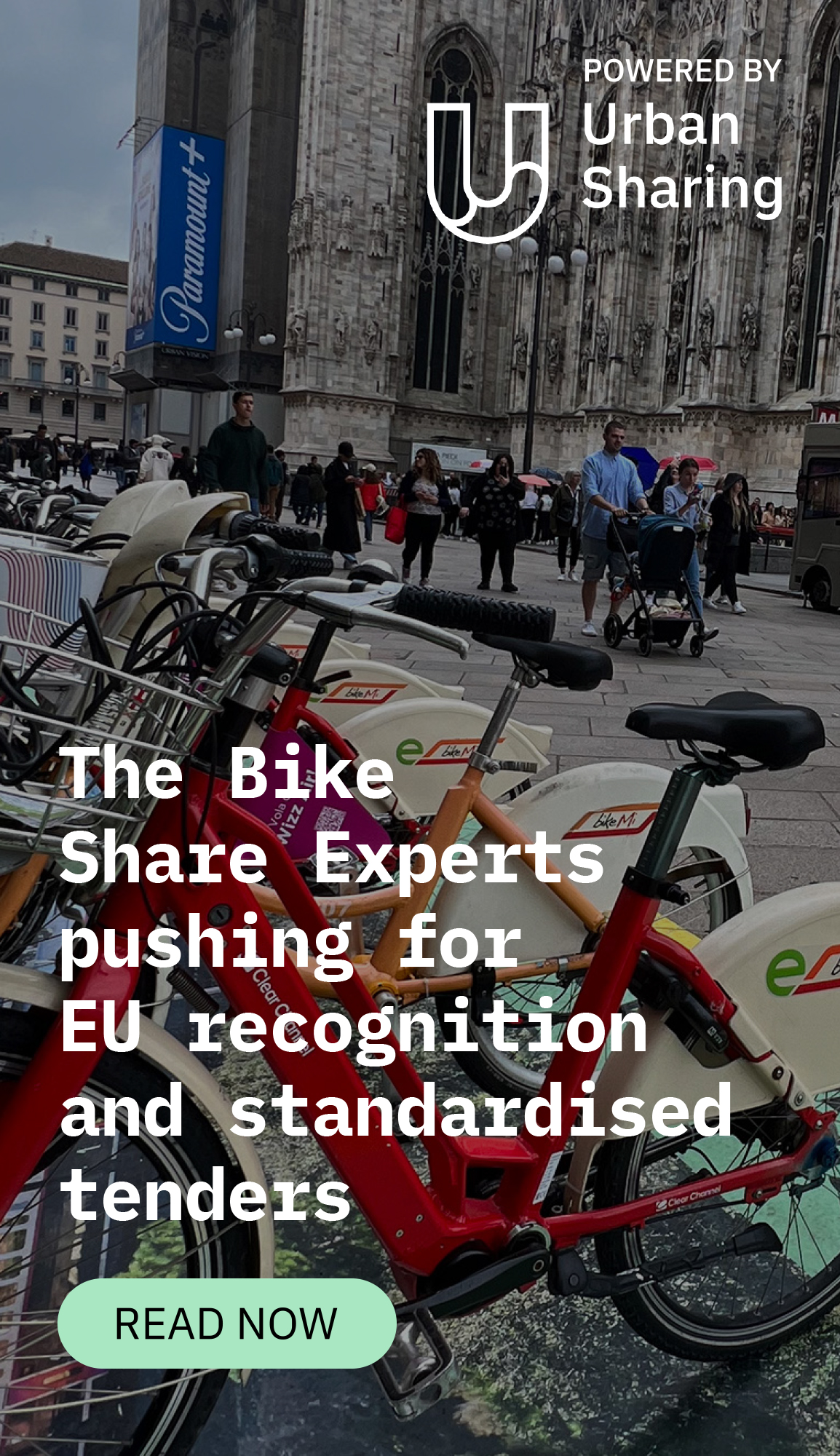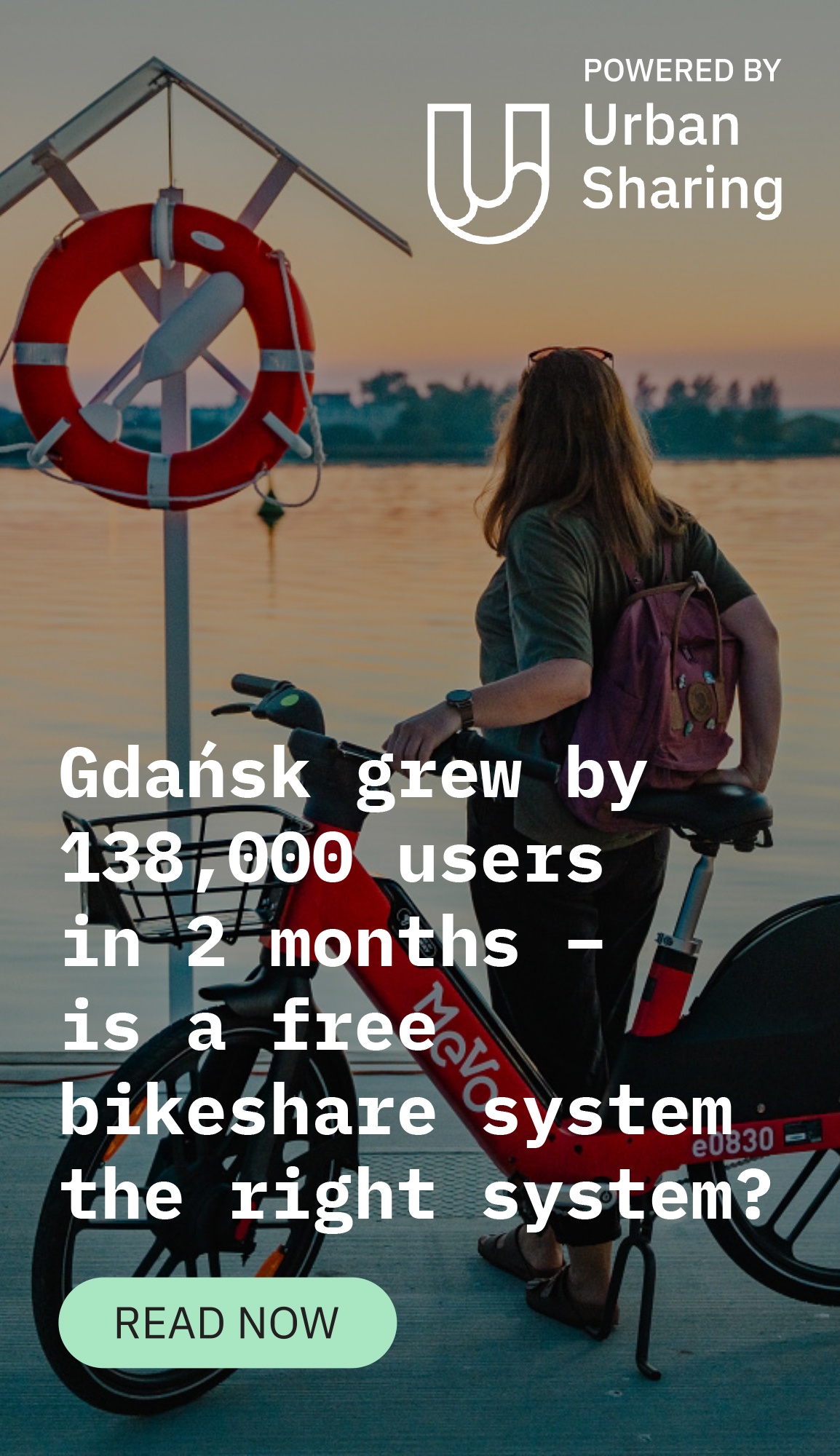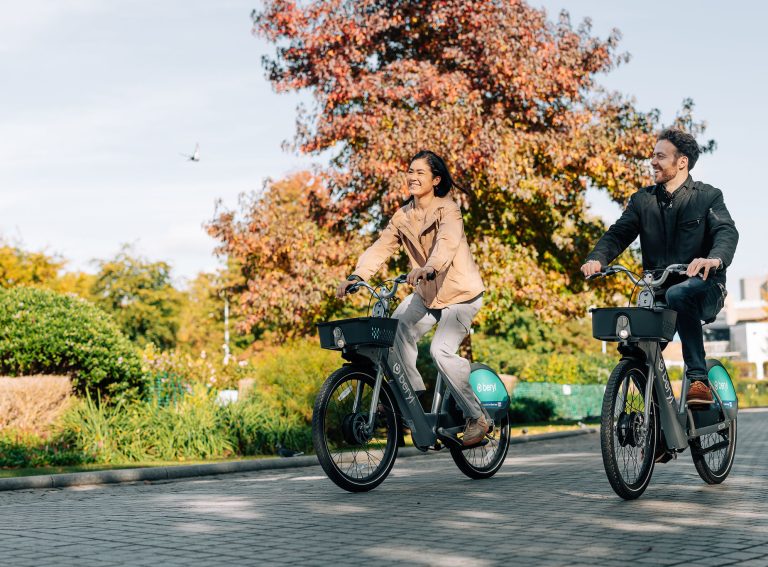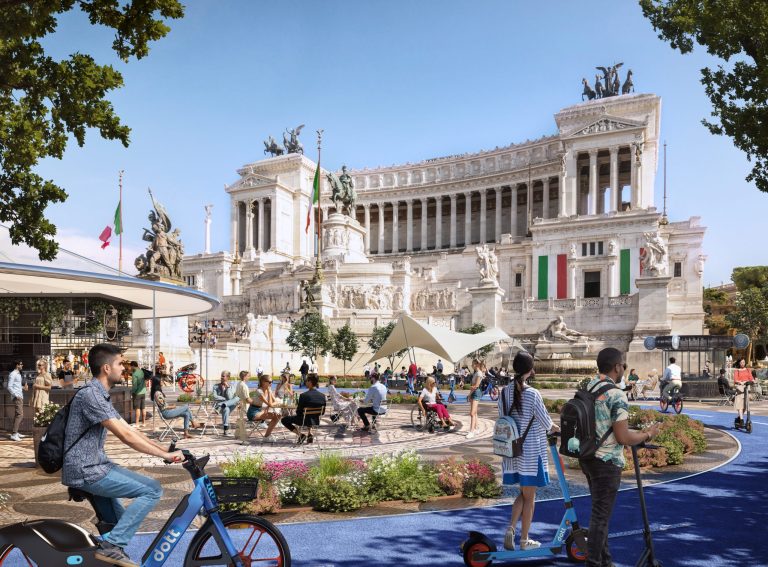We’ve long championed the e-cargo bike as a flexible, convenient and sustainable way to make different types of journeys.
Three years ago, we launched the UK’s first e-cargo bike hire pilot in partnership with the Zero Emissions Network – a partnership between the London Boroughs of Hackney, Islington and Tower Hamlets, supported by the Mayor of London.
But the vehicles are now also revolutionising our on-street operations across multiple schemes.
Fitted with an electric-assist motor for extra power, the bikes are ideal for transporting small to medium loads.
They can be used on cycle lanes, making them a sustainable alternative to vans and cars that help reduce carbon emissions and traffic congestion while improving air quality and public health.
They’re also ideal for traversing built-up urban environments quickly, meaning jobs can be carried out quickly and with minimal fuss.
Just ask those charged with ensuring things run smoothly.
Case study: Beryl’s innovative Norwich scheme
Norwich is one of Beryl’s flagship schemes and was the first in the UK to offer riders the chance to use bikes, e-bikes and e-scooters via the same app. It’s on the way to chalking up two million sustainable journeys since first launching in March 2020 and has significantly contributed towards reducing congestion while improving air quality and public health across Norfolk.
Instead of high emission diesel vans, the scheme uses four e-cargo bikes to perform battery swaps, move vehicles, carry out repairs and other miscellaneous uses.
On average, the e-cargo bikes are used seven days a week to carry out up to 350 jobs, making them an integral part of on-street operations. They are serviced by training mechanics to allow fully qualified mechanics to concentrate on scheme repairs and boosting availability.
Our Norwich Scheme Lead, Danny Quinton, believes that the e-cargo bikes accessibility and flexibility make such a positive difference to both him and his team of mechanics.
“They are super efficient and have amazing access to locations that vans just can’t get to. They can utilise bus lanes and cycle routes, which is a big plus in the city centre, and they cost almost nothing to run.
“When we first started using them our vision was to boost our efficiency, removing the barriers of waiting for swaps and boosting our vehicles’ on-street availability.
“The scheme’s excellent availability record and the amount of miles covered and subsequent fuel costs and emissions saved show that they’ve been a real success and made the Norwich operations even better.”
Case study: Hereford and Pedicargo
In Hereford, Beryl subcontracts the on-street logistics to a local delivery solutions company, Hereford Pedicabs & Cargo. This company uses e-cargo bikes and trailers to undertake rebalancing, collections, distribution and battery swapping to keep the scheme operating smoothly. Run in partnership with Herefordshire Council, the scheme comprises 145 bikes and 75 e-bikes across 72 bays in the city, so it generates plenty of work.
To help manage this, Pedicargo in turn subcontracts all of the mechanical work to local community interest company (CIC), Hereford Cycle Hub, which are housed in the same depot. That income helps the CIC to manage basic overheads and removes some of the pressure of fundraising. As well as offering cycle repairs, the hub runs a range of educational courses and work experience placements to benefit local people.
Utilising the skills and expertise of these local companies is a great example of how we try to integrate within the communities that we serve, going beyond shared transport provision. By subcontracting, we contribute to the local economy and provide employment, upskilling and work experience opportunities for local people.
Pedicargo Director, Will Vaughan, agrees that there are many financial, operational and environmental benefits to their use of e-cargo bikes.
“Our overheads running e-cargo bikes are less which means we can pay staff well and provide a high quality service for a competitive price. There are of course significant other gains; very low carbon production, safer streets, better accessibility, quiet operation in residential areas. Also, physically, we have much less impact on the infrastructure we use than vans or lorries would do.”
Will explained his pride at Pedicargo’s involvement from the start and believes that their presence helped the scheme to evolve and grow quickly.
“Being already ingrained as a business in Hereford and having a big presence, the Beryl scheme has been something we have been proud to help deliver, manage, nurture and grow.
“We think the attention we were able to give it in the early months helped to establish a no-nonsense scheme that prioritised availability and is low nuisance and high impact for the city.
“We worked hard to be on the street at all hours in the early days to ensure problems were mitigated early. By doing so, I think we helped to avoid the broken window theory.”
The success of the two schemes mentioned owe much to the multiple benefits of the e-cargo bike, which help solve many of the problems posed by the modern city.
Their capacity to navigate through dense urban environments and bypass traffic congestion which plagues many inner city road networks saves valuable time and resources. Those resources can be redistributed elsewhere, resulting in more efficient day-to-day operations.
Also, by utilising pedal power instead of fuel, they not only save money but help reduce carbon footprints and tackle climate change – a cause we should all be supporting.

